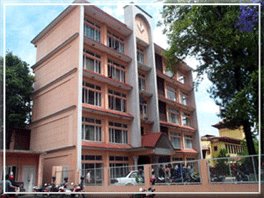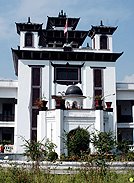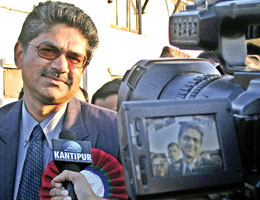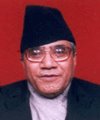Kathmandu,Dec 31-President of Nepal Bar Association, Shambhu Thapa, alleged that the royal government had failed to establish peace and democracy in the country and urged all to be ready for sacrifice to restore peace and democracy as the country was heading towards a decisive turn.Addressing a program organised by Amnesty International Nepal to mark the 'International Day of Prisoners of Conscience' in the capital on Saturday.
“Morning shows the day,” said Thapa. "The 11-month long direct rule of the King has proved that this government can do nothing other than violating fundamental rights of the people and principle of rule of law. So, nobody should have an illusion that the King could restore peace and democracy in the country within three years," he added.
Coming down heavily upon the appointment of people loyal to the royal palace to the posts of temporary Justices at the apex court, Thapa alleged that the nomination was a ploy to control independent judiciary in the country.
He urged UN OHCHR to play an active role for the protection of human rights during the forthcoming agitation of the civil society and political parties, which he said would be decisive.
He informed that Nepal Bar Association was initiating a debate throughout the country about the present constitution to point out its weaknesses.
Chief of the United Nations Office of the High Commissioner for Human Rights in Nepal, Ian Martin, has said the United Nations is serious about the incidents of increasing disappearances, torture and denial of free trial in Nepal.Martin said the UN Secretary General has expressed serious concerns over the rights violation in Nepal.
Issuing a statement on Friday, UN Secretary General Kofi Annan expressed grave concern over the violations of human rights in the country and urged the government to reciprocate unilateral truce declared by the Maoists to restore peace in the country.
Stating that Nepal is passing through serious rights crisis, Martin urged all Nepalese to express solidarity to the rights movement around the world.
Human rights activist and former prisoner of conscience, Krishna Pahadi, said there was no alternative to civic movement in the country to restore people's rights and democracy.Stating that sustainable peace was essential in the country to protect fundamental rights of the people, he said it would be possible only after the restoration of “total democracy” in the country.
Pahadi also expressed dissatisfaction over what he called passivity of the Supreme Court to protect fundamental rights of the people. "The court should act as a doctor to cure illness of the people, not otherwise,” he added.
President of the Federation of Nepalese Journalists (FNJ) and a former prisoner of conscience, Bishnu Nisthuri, alleged that the state was creating various obstacles to the independent media in the country as the media was played an important role to increase awareness among people.
He asked the UN OHCHR to pressurize the King to respect people's fundamental rights and restore democracy.
Former prisoner of conscience Thakur Gaire and Gagan Thapa said the agitation by the seven political parties would be decisive to restore democracy in the country as protection of fundamental rights was not possible in its absence.
Amnesty International, an international rights watchdog, observes 31st December as the 'Day of Prisoners of Conscience" every year







